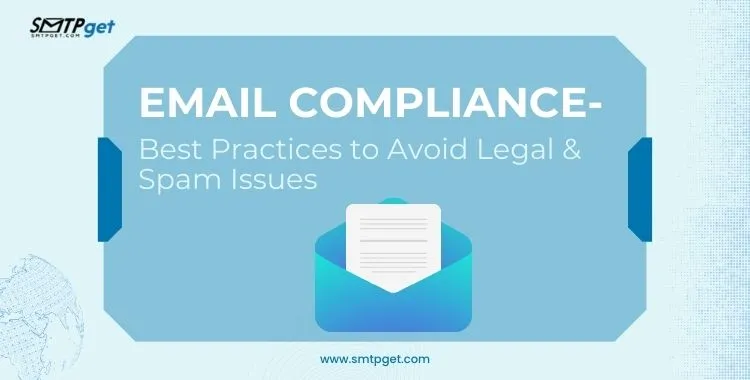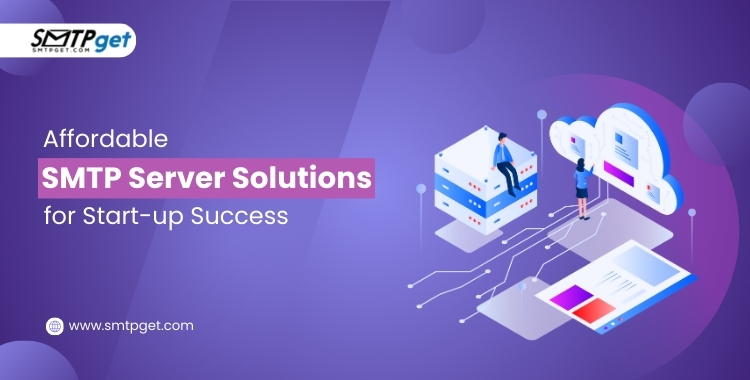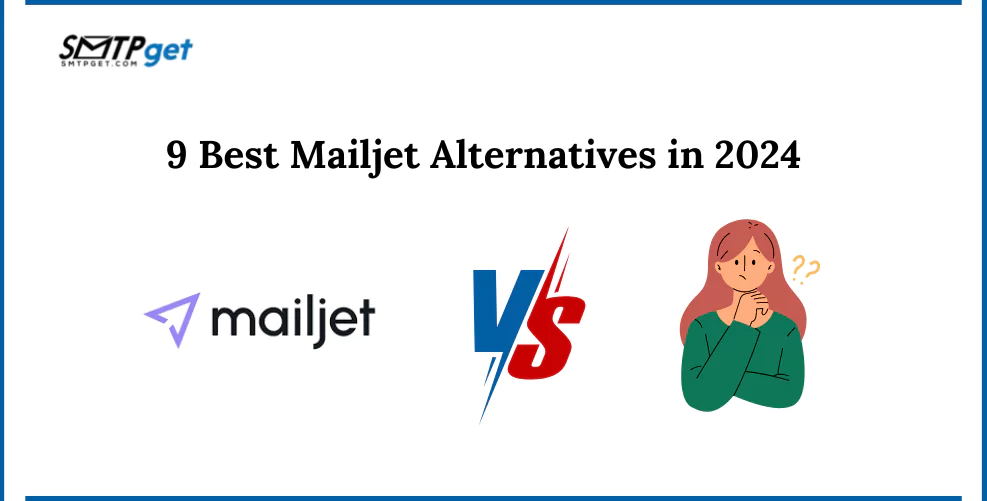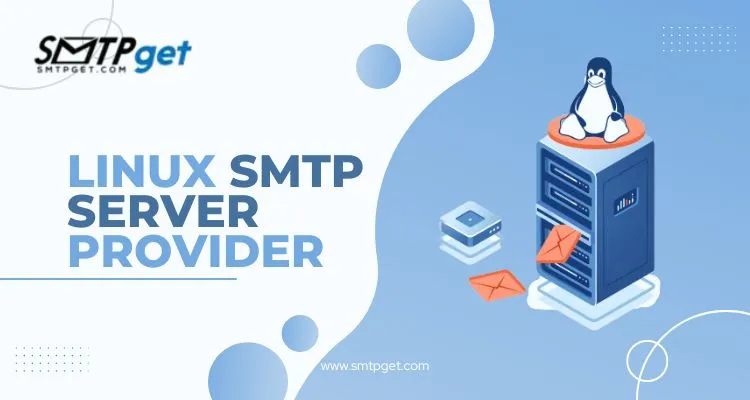Emails are an essential part of business communication. They contain important information, legal documents, and records that companies may need in the future. However, storing and managing emails properly is important to follow legal rules, protect sensitive data, and keep business operations smooth. This is where email retention comes in.
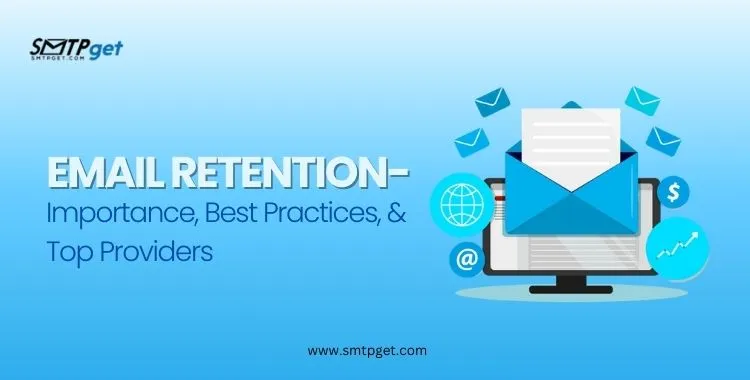
In this article, we will discuss the importance of email retention, email retention policies, email retention best practices, strategies, and top service providers that offer email retention solutions.
Our Pricing:
| Pricing | Cheapest Plan | Standard Plan | Professional Plan |
| SMTP Server Services | $110 | $165 | $220 |
| Bulk Email Server | $50 | $145 | $225 |
| Bulk Email Service | $30 | $110 | $220 |
What is Email Retention?
Email retention is the process of keeping emails for a specific period based on business needs and legal requirements. It helps companies stay compliant with laws, improve security, and maintain important records.
Email retention refers to the practice of storing and managing emails for a specific period based on business needs, compliance regulations, and security policies. Organizations retain emails to maintain records, ensure legal compliance, and improve operational efficiency.
Why is Email Retention Important?
Keeping emails for a set time is important for businesses. It helps follow legal rules, keeps data safe, and stores important messages for future use. Email Retention also protects companies in case of legal issues and helps them find old information easily.
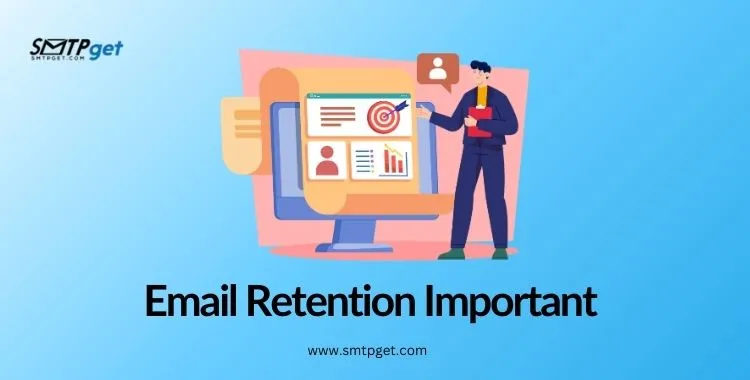
1. Legal and Regulatory Compliance
Many industries require businesses to retain emails for a certain period to comply with regulations such as:
- General Data Protection Regulation (GDPR)
- Health Insurance Portability and Accountability Act (HIPAA)
- Sarbanes-Oxley Act (SOX)
- Federal Rules of Civil Procedure (FRCP)
2. Data Security and Auditing
Retaining emails helps organizations conduct audits, track communications, and resolve disputes effectively.
3. Litigation and Legal Protection
In case of legal issues, retained emails serve as evidence to protect businesses from liability.
4. Knowledge Management
Emails contain valuable information, and retaining them ensures historical data is available for future reference.
How Long Should Emails Be Retained?
The retention period depends on business needs and email retention policies. Here are common retention guidelines:
- General Business Emails: 3-7 years
- Financial Records: 5-10 years
- Legal Correspondence: Indefinitely or as required
- HR & Employee Records: 7 years after employment termination
- Healthcare & Patient Data: 6 years or more (as per HIPAA)
Best Practices for Email Retention
To ensure compliance and efficiency, organizations should follow email retention best practices:
1. Define an Email Retention Policy
Organizations should create a clear email retention policies outlining:
- Types of emails to retain
- Retention periods
- Storage methods
- Disposal policies
2. Use Email Archiving Solutions
Email archiving tools help businesses automatically store and manage emails securely while ensuring easy retrieval.
3. Ensure Compliance with Regulations
Businesses must regularly review and update email retention policies to align with changing regulations.
4. Implement Role-Based Access Controls (RBAC)
Restrict access to retained emails based on user roles to prevent unauthorized access and data breaches.
5. Regular Backup and Disaster Recovery
Back up email archives regularly to prevent data loss due to system failures or cyberattacks.
6. Secure Email Storage
Encrypt emails and store them in secure, compliant environments to protect sensitive information.
7. Monitor and Audit Email Retention Practices
Regular audits help ensure compliance and identify areas for improvement.
Email Retention vs. Email Archiving
| Feature | Email Retention | Email Archiving |
| Purpose | Stores emails for compliance and business needs | Stores and indexes emails for easy retrieval |
| Compliance | Ensures emails are retained as per regulations | Helps meet legal, compliance, and discovery needs |
| Storage | Can be stored in mail servers or separate storage | Uses dedicated archiving solutions |
| Accessibility | Emails may remain in inboxes | Emails are indexed for quick search and retrieval |
Email Retention Challenges
Despite its benefits, email retention comes with challenges:

1. Storage Management
Large volumes of emails require efficient storage solutions to prevent server overload.
2. Compliance Complexity
Different regulations have varying email retention policies, making compliance challenging.
3. Data Security Risks
Retained emails are potential targets for cyber threats, requiring strong security measures.
4. Balancing Retention and Deletion
Organizations must decide which emails to keep and which to delete to optimize storage and compliance.
Top Email Retention and SMTP Service Providers
Several service providers help businesses manage, store, and retain emails while ensuring compliance with email retention policies. Here’s a detailed look at the best solutions available:
1. SMTPget
SMTPget is a powerful SMTP server solution designed for businesses that need reliable email delivery services, email retention, and compliance support.
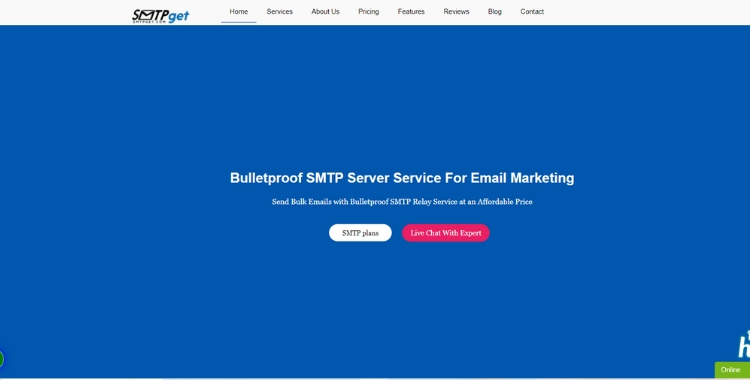
Key Features:
- High-Volume Email Sending: SMTPget allows businesses to send bulk emails efficiently while ensuring high deliverability rates.
- Email Retention & Archiving: Securely stores emails for future retrieval, making it easier to comply with legal and business regulations.
- Real-Time Tracking: Provides real-time monitoring and analytics for email campaigns.
- Secure Backup Options: Ensures that all email data is backed up and protected against loss.
- Compliance-Ready: Meets industry standards for data retention, making it suitable for regulated industries.
Best For:
Businesses that require high-volume email sending, tracking, and secure retention of emails.
2. iDealSMTP
iDealSMTP offers premium SMTP services with email retention and archiving solutions, ensuring businesses remain compliant with regulatory requirements.
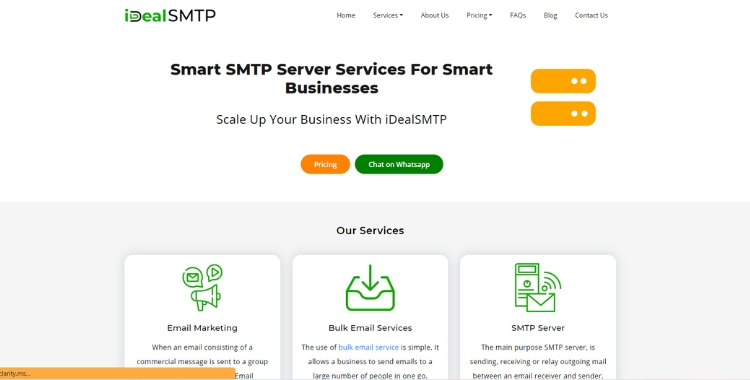
Key Features:
- Advanced Email Archiving: Helps organizations retain emails while ensuring easy access when needed.
- GDPR & HIPAA Compliance: Ensures adherence to legal and security standards for email storage.
- Bulk Email Sending: Provides a high-performance SMTP server for marketing and transactional emails.
- Secure Data Storage: Protects sensitive email data with encryption and backup solutions.
- Spam and Bounce Management: Helps improve email deliverability by reducing spam and bounce rates.
Best For:
Companies that need email retention solutions with advanced compliance features and bulk email delivery.
3. DigitalAka™
DigitalAka™ specializes in email marketing solutions and email retention services to help businesses track, store, and manage their emails effectively.
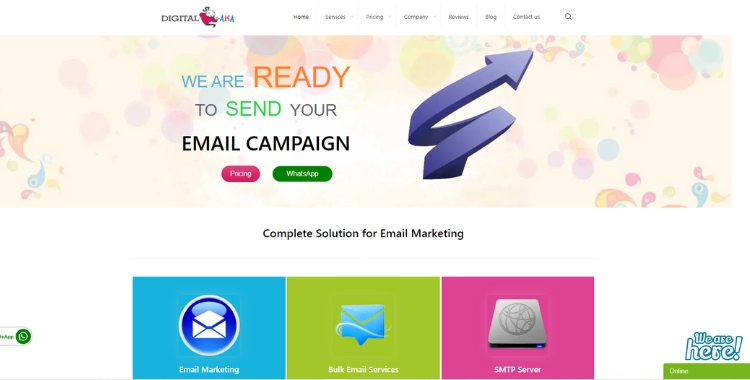
Key Features:
- Email Log Management: Keeps track of all sent and received emails with detailed logs.
- Automated Email Backups: Ensures that email data is never lost.
- Marketing & Transactional Email Support: Provides a complete email delivery solution.
- Anti-Spam & Security Protection: Prevents unauthorized access and spam infiltration.
- Easy Integration: Works with various email clients and platforms for seamless use.
Best For:
Businesses looking for email marketing solutions with retention and backup options.
4. SMTP2Go
SMTP2Go is a cloud-based SMTP service provider that also offers email retention and tracking capabilities.
Key Features:
- Reliable Cloud-Based SMTP Server: Eliminates the need for on-premise servers.
- Real-Time Email Tracking: Provides analytics on email opens, clicks, and delivery rates.
- Automatic Email Backup: Prevents email loss with secure storage.
- Global Compliance Standards: Meets international email retention policies.
- Built-In Email Authentication (SPF, DKIM, DMARC): Ensures better email deliverability and prevents spoofing.
Best For:
Businesses looking for a hassle-free, cloud-based SMTP and email retention solution.
5. Amazon SES (Simple Email Service)
Amazon SES is an affordable, scalable SMTP solution from AWS that integrates with other AWS services for email storage and retention.
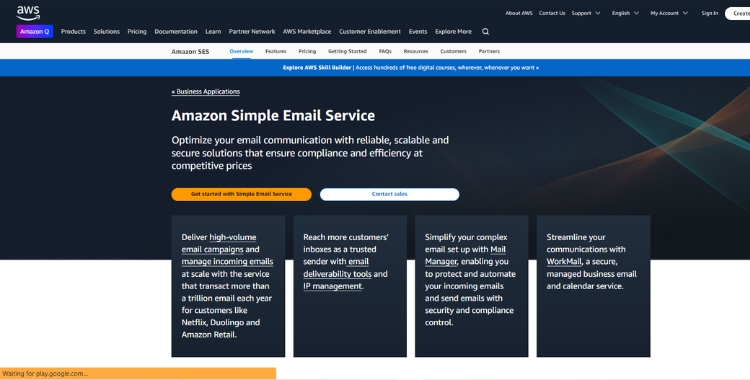
Key Features:
- Pay-as-You-Go Pricing: Cost-effective solution for businesses of all sizes.
- AWS Integration: Works with Amazon S3, AWS Lambda, and Amazon CloudWatch for advanced automation and retention.
- High Email Deliverability: Uses machine learning to prevent spam and improve inbox placement.
- Compliance & Security: Provides encryption and data retention controls to comply with regulations.
- Bulk Email Sending Capabilities: Supports marketing and transactional emails.
Best For:
Developers and businesses looking for a scalable email solution with integrated AWS storage for retention.
Conclusion
Email retention is a critical aspect of business operations, ensuring compliance, security, and knowledge management. Organizations should implement email retention policies, leverage archiving solutions, and follow email retention best practices to manage emails efficiently while minimizing risks. By doing so, businesses can safeguard sensitive data, meet legal obligations, and streamline communication management.

